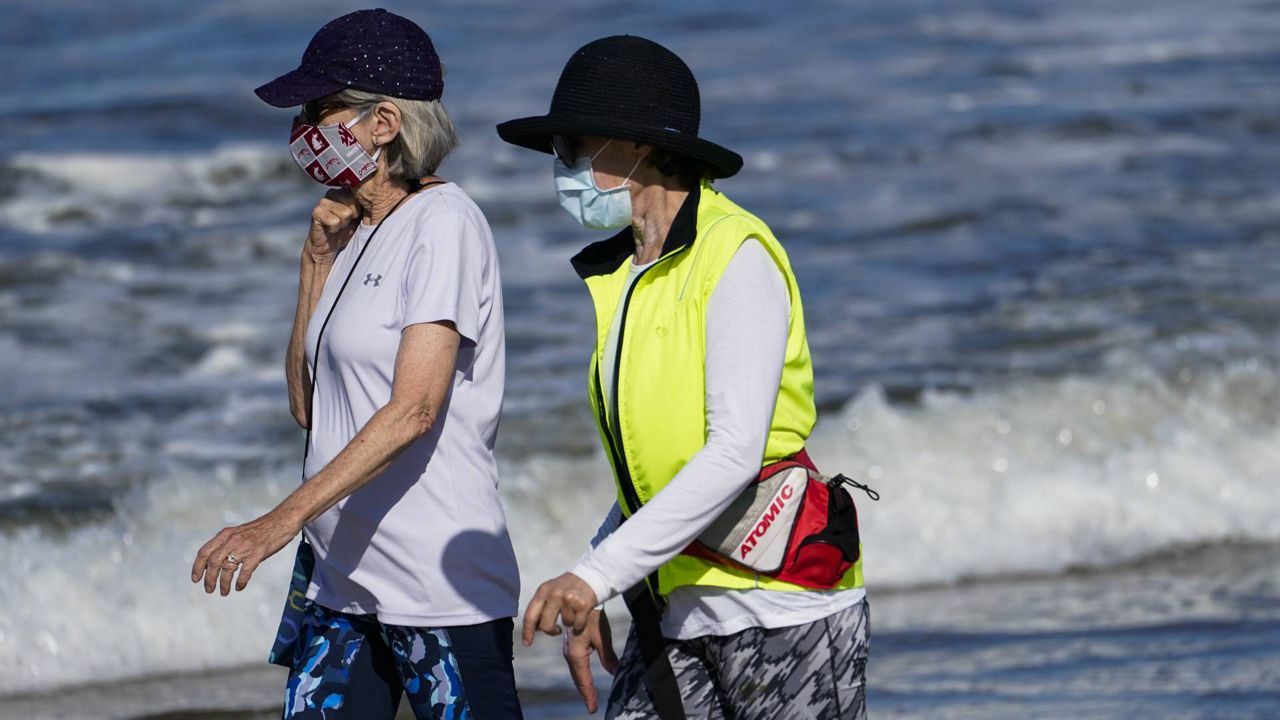LOS ANGELES — Again warning of a "real and alarming" surge in COVID-19 cases, Los Angeles County's public health director said Monday the county is vastly expanding its community outreach efforts to educate residents about slowing transmission of the virus, particularly in hard-hit areas.
Barbara Ferrer noted that some individual communities within the county are seeing disturbingly high case rates. Pacoima topped the list of most-impacted communities, with an adjusted rate over two weeks of 506 cases per 100,000 residents. That's more than double the countywide rate of 188 cases per 100,000 residents.
What You Need To Know
- L.A. County reported 1,413 new cases and another five coronavirus-related deaths on Monday
- There were 855 people hospitalized with the virus as of Monday
- L.A. County is vastly expanding its community outreach efforts to educate residents about slowing transmission
- Pacoima tops the county's list of most-impacted communities
Sun Valley was second on the list, with 456 cases per 100,000 residents, followed by Palmdale at 406. Other communities on the list were East Los Angeles, Van Nuys, El Monte, Downey, Pomona, North Hollywood, Glendale, Santa Clarita, South Gate, Florence-Firestone, Canoga Park, and Panorama City.
"For everyone who's living in these communities, please note you need to take extra precautions," Ferrer said. "And if you've had an exposure, you should know that there's plenty of testing available so you can go in immediately and find a place to get tested."
She said no specific reasons have been identified in the hard-hit communities to explain why they have such higher case rates. But the county is expanding its Community Health Worker Outreach Initiative, which sends health workers to interact with residents and provide them with virus information or connect them with resources.
The county had roughly 60 people assigned to that effort, but last week it trained another 170 staffers who will begin fanning out this week, "to amplify our messaging and provide general education to everybody who lives in communities experiencing a disproportionately high burden of disease," Ferrer said.
A large part of that messaging will be warnings against gatherings that public health officials are blaming for fueling the surge that has seen the county reporting more than 2,000 virus cases daily since late last week, including 4,600 over the weekend.
"These numbers are demonstrating real and alarming increases, and the next two weeks will be crucial," she said. "As we go into our cooler months and many holidays, we are increasingly worried about more and more transmission of the virus and more hospitalizations and deaths from COVID-19."
If you were in a large crowd this weekend with people not wearing face coverings, please self-quarantine for 14 days & consider getting tested for #COVID19. Do your part by limiting your contact with other people, especially those at higher risk for serious illness. pic.twitter.com/OcOL4ETRpH
— LA Public Health (@lapublichealth) November 9, 2020
The county reported a relatively low 1,413 new cases on Monday, but Monday case numbers are typically low due to lags in test-result reporting from the weekend. The new cases lifted the county's cumulative total to 323,625 since the pandemic began.
Another five coronavirus-related deaths were reported by the county Monday, lifting the overall death toll to 7,177. There were 855 people hospitalized with the virus as of Monday.
Ferrer made another public plea for residents to adhere to health restrictions and avoid gatherings.
"This isn't a blip any longer," she said. "This isn't, `Oh we had one bad weekend and we're now getting it back under control.' This is now a surge in our cases and if it continues it will be quite alarming to go into our coldest months seeing this level of increase of cases."
She said the county doesn't want to be in a position of having to shut down more businesses, saying if residents take infection-control measures seriously, it will slow the spread of the virus. But if they don't, action could be taken.
"Otherwise, we're really looking at very troubling times for the winter ahead, times that could in fact threaten our healthcare system again. And that's something that we would not be able to tolerate."
Ferrer said the county is at a "pivotal point."
"There is no real path forward until we get back to slowing the spread," she said. "We don't have the luxury of ignoring our individual and collective responsibilities if we want to see more children go to school and our businesses remain open. Recovery just doesn't continue when you have thousands of new cases each day, and many of these cases stem from people taking risks that are frankly not appropriate. It isn't that hard to play by the rules, especially since these rules are what keep some people alive and allow our economy to improve."



